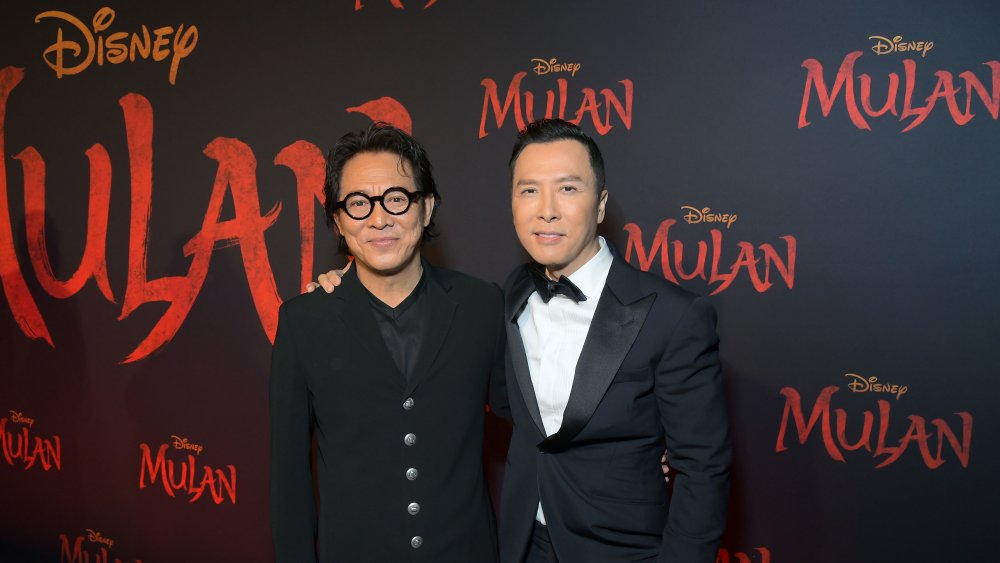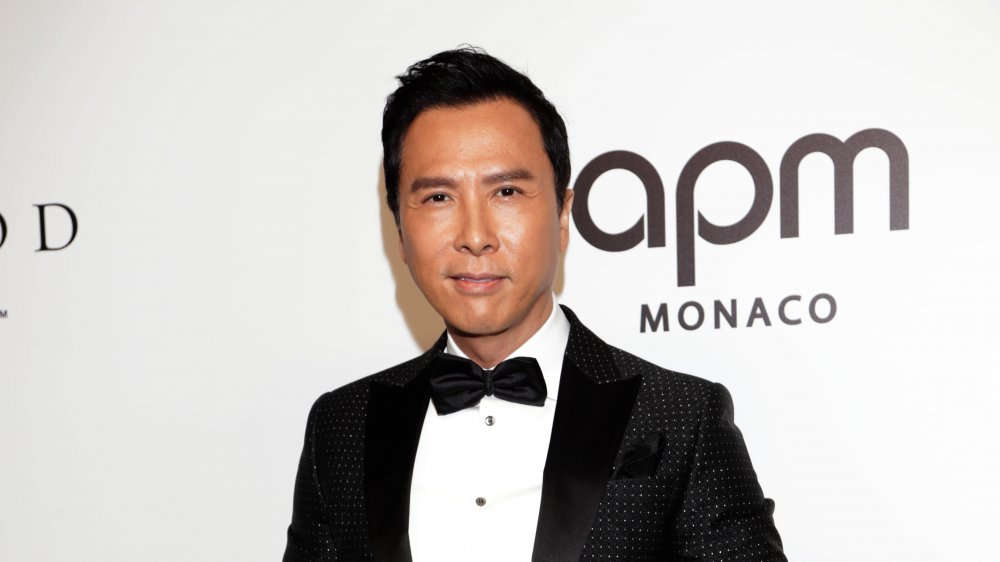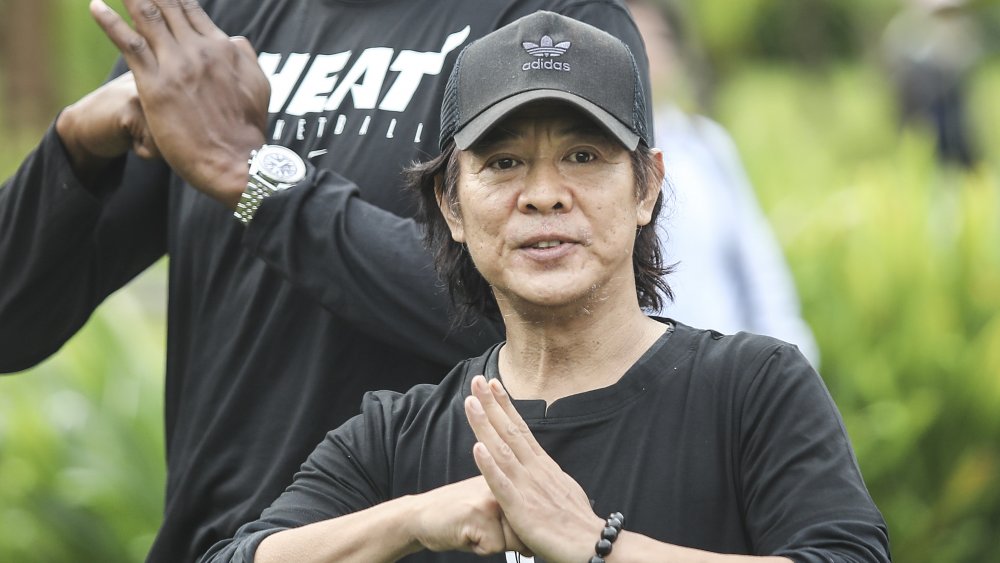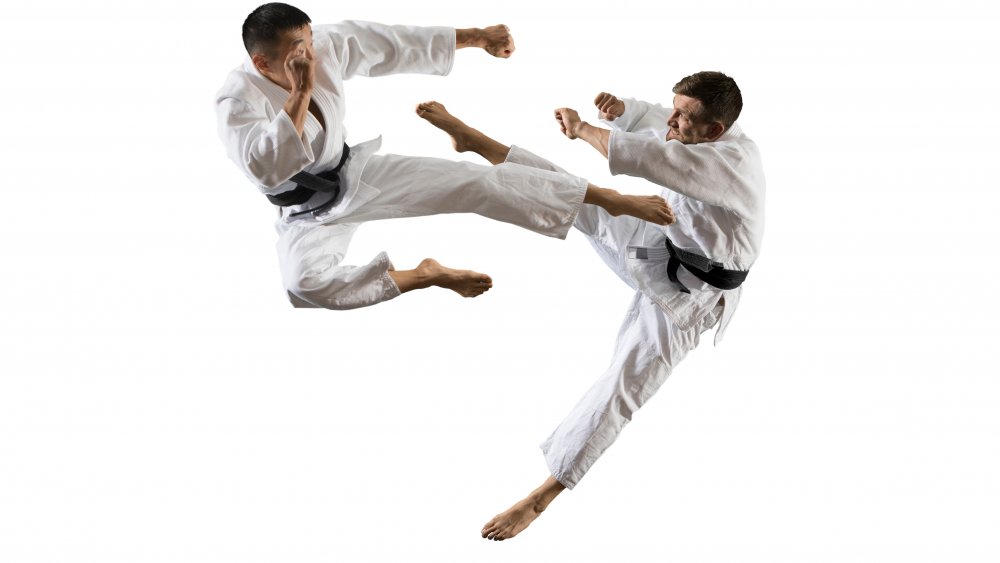Jet Li Vs Donnie Yen: Who Would Win?
In the spirit of locker rooms everywhere, we want to know who would win between two of the biggest martial arts movie actors: Jet Li or Donnie Yen?
The two have actually known each other for over forty years, per Kung Fun, though their first meeting was more of a passing acquaintance during Donnie Yen's short time studying under Jet Li's master Wu Bin. Fifteen years later, they met again in Hong Kong during the filming of "Once Upon a Time in China II." Though both were acting in the film, Jet Li had achieved fame as a martial arts movie star while Donnie Yen broke out with this film.
Since then, the two have reached the top, each becoming stars in their own right. Obviously, the contest is more about giving a slight edge, and not declaring the inevitable winner, which is impossible. Consider this more as a hypothetical betting guide than an attempt at a definitive verdict.
Donnie Yen
With a mother like the grand master Bow-sim Mark, it's only natural that Donnie Yen would pursue martial arts from a young age. After training in tai chi and other traditional martial arts under her, his parents sent him from Boston to the Beijing Wushu Team to keep him out of trouble. There, Master Wu Bin noted that "he worked very hard, he was the only one still in practice after everyone else had left the martial arts hall." Later, Yen also set out to study taekwondo, judo, and Brazilian jiu-jitsu.
In 2007, Donnie Yen landed the lead role he's most famous for, Ip Man, the martial arts master of wing chun and teacher of Bruce Lee. To ready himself for the role, Yen spent nine months studying wing chun under the supervision of Ip Man's son, Ip Chun. Later, Ip Chun would say that Donnie Yen managed to grasp the full concept of Wing Chun quicker than any student he had before.
But how would he do outside of a film set? Setting aside the story of how he one time hospitalized eight men, Donnie Yen had to once contend with the non-actor but heavyweight champion Mike Tyson while filming Ip Man 3. People on set were concerned the Tyson would forget to hold his punches back. However, in the end, it was Donnie Yen who fractured Mike Tyson's finger with his elbow while blocking one of his punches.
Jet Li
Jet Li came from a background of poverty and began studying Wushu at age 8 when his school randomly assigned his class to study it. According to Kung Fu Kingdom, Wu Bin quickly saw he was talented and put him through more rigorous training. In another of his essays looking back at his childhood, Jet Li recalls how the coaches would respond when a student complained of a hurting arm: "'Hmm,' he would say. 'You're right. You shouldn't overwork your arm. Why don't you work on leg exercises instead?'"
These conditions paid off, however, as Jet Li won the National Games when he was only 12 years old, beating competitors who were in their twenties and thirties. And then he did it again and again, winning every year for five years from 1974 to 1979.
Since then, Jet Li's focus on Wushu has been more spiritual than physical, a sense that can be found on an essay he wrote comparing past Wushu and present: "I believe that deep inside, Wushu is much worse than before," Li writes. "I'm talking about the inside knowledge, the part of Wushu that does not involve the physical body. Inner cultivation is the most important part, and it's definitely lacking nowadays." In addition to this, his body has suffered from the conditions of the industry and his hyperthyroidism, per SCMP. He can no longer exercise as his resting heart rate is around 130 – 160 beats per minute, as opposed to the normal rate of 60 – 100 bpm.
So who would win?
As you might have been able to tell from the previous section, we believe that Donnie Yen would have the upper hand in the sparring match. Health was a major factor but even if we disregard health issues and imagine a scenario in which both are at their peak, the difference of emphasis with which each approaches martial arts moves us to Donnie Yen's favor. First off, he continued to explore and develop outside of the system he began with and second, Jet Li's preference for inner being and using Wushu as an art form to express oneself is, while laudable, not necessarily the best for preparing oneself for the final match, as he himself notes in his essay: "...whrrr whrrr whrrr — the athletes look like machines. They're moving so quickly, I can barely see what they're doing. And there's no flavor. Wushu is not a race. It shouldn't be like other sports, where the fastest athlete wins."
While Jet Li has a point, the question we're asking is essentially who would be the better machine, and so we give it to Donnie Yen.



